Dental Veneers: A Brilliant New Smile
Movie star smiles float across the silver screen and help today’s biggest stars earn tens of millions. The stars know that their smile is a vital part of their appeal. And they make sure it looks top-notch. With today’s modern dental materials, veneers upgrade a smile in just a couple of visits. In some cases, veneers work like “instant orthodontics,” correcting chips, stains, and even deeply discolored teeth. The length and size of teeth can be changed, or rotated teeth can suddenly appear straight. While it sounds dramatic, the journey from one smile to another is often shorter than most people think.
Veneers create the perfect union between dental art and science, handcrafted and customized to deliver the smile of your dreams. Like a contact lens, paper-thin pieces of porcelain bond to the front surface of your natural teeth. But don’t be fooled by the thinness of this material. Many unique and durable qualities characterize modern ceramics, producing any look you want for years to come.
Veneers offer a conservative way to repair unsightly teeth, the steps required to deliver them properly require an advanced level of training and experience. When you choose a dentist you trust, you’re in the right place to end up with new confidence in your appearance.
- Ask Dental Veneers Questions Online and Dental Veneer Blogging online with us.
- Dental Chat about Dental Veneers with us and Cosmetic Dental Care Chatting Online with us.
A Smile As Unique As You Are
Careful planning and attention to the design of your smile is vital to a successful outcome with veneers. Models, photographs, and digital x-rays are incorporated by your dentist to create a perfect blueprint for your case. Like all successful projects, this planning leaves little room for error. Your dentist will listen to your input and incorporate your desires into your veneer case. Color, shape and other subtle factors play vital roles in the overall plan.
Once your case is designed, it usually only takes two appointments until you’re enjoying a terrific new smile. At the first visit, the teeth are precisely prepared in some areas to allow space for a master lab technician to sculpt artful porcelain into place. Your dentist provides all the information to the specialized lab that’s needed to create your personal masterpiece.
Your dentist also creates temporary acrylic restorations that mimic the veneers. Worn for 2-3 weeks, these temporaries provide a preview of the expected appearance of your planned smile and allow you to give more input regarding the outcome of your new smile.
The New You
After fully customized craftwork in the lab, you’ll return for an exciting appointment. Your dentist will try-in each veneer and evaluate the appearance and fit, giving you an opportunity to preview the new you. A series of precise steps adhere the veneers into place, creating an extremely powerful link between the tooth and porcelain material. Minor adjustments to your bite and a final polish will be a perfect finish to a smile that may leave you wondering why you waited so long to make a big difference in your life!
Dental Veneers Blog and Ask Dental Veneer Question Online with us at DentalChat.com. Ask Dental Veneers Questions and Cosmetic Dentistry Chat post your dental question at DentalChat.
If you don’t have a dentist or you’re dealing with more questions about what to expect after tooth extraction, you’re in the right place. DentalChat provides the best platform to connect with licensed U.S.-based dentists. You can ask questions online and even connect with a nearby office that can help you with your needs. Feel free to jump on and see how we can help now or in the future!

Dental Insurance: A Benefit Primer
If you have dental benefits, you’re fortunate to be amongst 60% of the population with outside financial support for dental care. Most plans are offered by employers as part of a benefits package, and can be helpful in making dentistry more affordable. But dental plans rarely cover everything and are designed to help share the cost of treatment with you. While it’s impossible to say exactly what your plan covers, or doesn’t, a few simple guidelines will help you ask the right questions. With hundreds of plans on the market, it’s also difficult to know the nuances of everyone. But the experts at your dental office will help you fill in as many details as possible.
Dental plans typically pay a high percentage of preventive services. These relatively low-cost services performed most commonly twice each year are simply the wisest dental commitment you can make. A small problem detected and managed early can cost 1/10 of the price tag of major repairs, even to salvage a single tooth. Insurance companies understand this, and often will gladly pay a little to save a lot.
If you need a filling for a broken or decayed tooth, insurance benefits may cover 40-80% of the cost. A larger restoration with porcelain may be covered at 40-50%, which is often a similar rate of coverage for other major services including root canals, dentures, and oral surgery. These general guidelines are just that…general. And sometimes insurance companies won’t indicate just how much they’re going to pay. So it’s wise to consider a discussion of payment prior to treatment as an estimate, based on the best information supplied by the insurance company. And remember, every plan has an annual maximum that hasn’t changed in 50 years. These dollars can significantly help you support your health, but they’re not designed to cover all the bases.
Dental benefits usually don’t cover purely cosmetic procedures such as whitening or veneers. But there may be other services related to a beautiful smile makeover that will be partially covered. If certain teeth in your smile have large restorations or old crowns, their replacement often meets the criteria for coverage. Furthermore, your dentist will incorporate artistry into every service they provide whether dental benefits are involved or not.
While your dentist works 100% for you, not the insurance company, your dentist’s team will always try to help you maximize your dental benefits. At DentalChat, we help patients find the right dental home where they feel comfortable. Let us know how we can help! We look forward to partnering with you to enhance your dental health!
Do You Need a New Denture?
Like everything we use, dentures wear out over time. But when you consider the wear and tear a denture gets working to chew your food, it’s remarkable they last as long as they do. Not many artificial materials exist in a wet, warm place with grinding forces grinding away day after day without wearing out! A properly made set of dentures can work for years before reaching their demise. Plus, they require little additional cost to maintain them over that period. But as it goes, the tough medical-grade plastic teeth wear down and can’t tear food as they used to. Or the base of the denture starts to crack, thin, and chip away. In some situations, the entire denture may break in half.
If you’re dealing with bad teeth, you may just be considering your first denture. If you’re not sure, a visit to the dentist can help you figure out your options. Whether you need a new denture or you can save your existing teeth, an exam is a good place to start. We welcome local dentists to do Partial Denture Blogging online and Dentures Chatting Online with us.
The cost of dentures worries patients when they decide it’s time for a new pair. Your dentures significantly influence your quality of life since they’re usually part of your daily experience. You’ve probably had a pair of cheap, poorly-fitted shoes. And in contrast, you’ve probably had a pair of comfortable shoes made from the best materials. While the prices were different, you ended up with what you paid for. We can all relate to that situation with many products we’ve purchased.
More Than A Product
But dentures are more than a product. In the bigger picture, they’re one part of a professional service that’s designed specifically for you. It’s important your dentist thoroughly examines your mouth before starting the steps to craft your new smile.
Sometimes unhealthy fungal infections thrive under old dentures, or gums are red and swollen. Unless these problems are examined and treated, new dentures just end up sitting on top of old problems. Your doctor checks for any signs of gum and jaw changes that need attention, a skill that requires the training of a dentist. Their background in anatomy helps them determine whether features of your mouth will affect the fit of new dentures.
Do you have Denture Question or Partial Dentures Questions with us at DentalChat.com – Ask Dentures Question here at DentalChat.
Since your dentist brings advanced training in cosmetic dentistry to the table, they apply that artistic eye to designing your new smile. For example, the color of denture teeth can be customized to your preference. And you may be surprised to learn that tooth size, shape, and alignment are part of the option package you choose. The cost of new dentures includes high-quality teeth duplicating nature, all ideally set into place for lip support and solid function. In most cases, the precisely placed teeth can be evaluated by you before the denture is processed. This gives you valuable input to the process that leads to a final denture.
New dentures may need slight adjustments since they’re made to fit closely onto your gums. Small pressure points aren’t unusual and Dr. Y is happy to fine-tune your new teeth once you’ve had a chance to use them. Short visits to make small adjustments right after you start wearing them are generally included in the cost of your overall treatment.
Nicely crafted dentures give you confidence, good function, and a smile you are pleased to display to the world. If you need help finding the best dentist to explore options for a new denture, we’re here to help you out. Try our chat function to connect with a dentist on our team!
If you don’t have a dentist or you’re dealing with more questions about what to expect after tooth extraction, you’re in the right place. DentalChat provides the best platform to connect with licensed U.S.-based dentists. You can ask questions online and even connect with a nearby office that can help you with your needs. Feel free to jump on and see how we can help now or in the future!
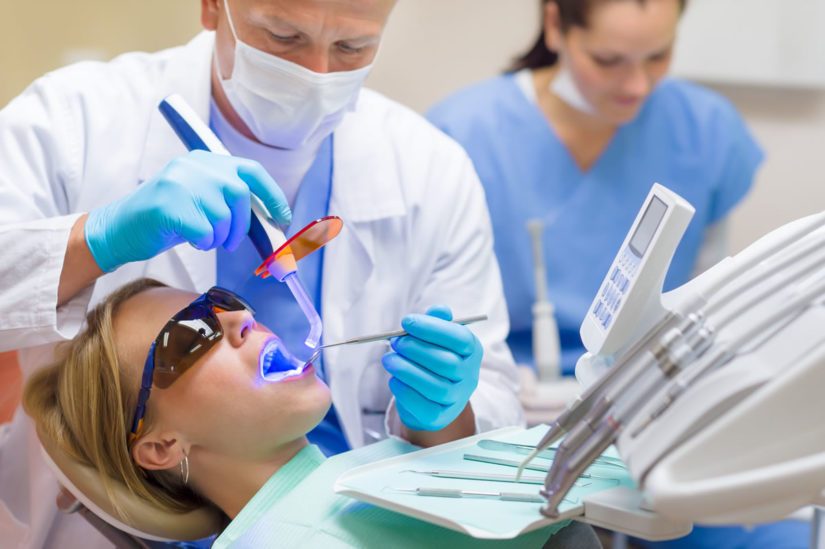
What To Expect After Tooth Extraction: A Patient Guide
If you’re wondering what to expect after tooth extraction, you’ve landed in the right place. It might not be at the top of your list, but sometimes the best solution to a dental problem involves removing your tooth. And many young people find themselves facing the removal of wisdom teeth. Regardless of the situation, knowing what to expect helps reduce your anxiety about what’s normal and when to be concerned.
Consider It Minor Surgery
Removing a tooth involves creating a small wound in your mouth. A tooth sits in the gum and bone, and we only see about 1/3 of the tooth structure above the gum line. The rest of it is anchored in the upper or lower jaw with thousands of tiny fibers that attach it to the bone.
After the tooth, bone, and gum are numbed with local anesthetic, your dentist applies steady pressure around the tooth to carefully detach it from the small attachment fibers. Pressure also slightly expands the bone and allows the tooth to loosen. In most cases, the tooth ends up out within a few minutes of precise, intentional movements.
In some cases, a tooth doesn’t easily move due to unusual roots that curve or extend deep into the jaw. Sometimes bone is less flexible than expected, or the tooth is difficult to engage because of deep cavities or broken pieces. If your dentist encounters this challenge, the gum is opened around the tooth, bone is carefully removed, and the pieces elevate out with the right technique. A few stitches are placed and healing begins.
What Comes Next?
At this point, you really start to wonder what to expect after your tooth extraction. Let’s look at a few things to keep in mind:
- Be patient with healing: The majority of your healing will take place over a period of two weeks, but the area will continue to change for several more weeks. Sometimes, small fragments of loose bone migrate their way to the surface and come out. But during the first 24 hours, it’s important to avoid vigorous exercise or heavy lifting
- Don’t skip eating: During the first 24 hours after a tooth extraction, you should go for soft foods and avoid hot beverages. Hard foods may aggravate the new wound, and hot beverages tend to soften the fragile clot. But after the first day or two, you can start to enjoy your normal eating habits.
- Rest wisely: A lot of restoration and repair goes on during sleep. If you’re not getting enough rest, healing tends to take longer.
- Stay in touch: If you have swelling that appears two or three days after your extraction, be sure to contact your dentist. If it’s accompanied by fever, difficulting breathing or swallowing, or bad-tasting discharge, make the call.
The Long Haul
Once you’ve started to heal, consider the longer term picture. Over time, the jawbone may begin to shrink and thin in areas where you’re missing teeth. You may also find that neighboring teeth tip into open spaces. Opposing teeth move down or up into edentulous areas. While this process may take years, you may end up with an unstable bite, difficulty chewing, and jaw pain issues.
Talk with your dentist about the best options for replacing your missing teeth or stabilizing your shifting teeth. Dental implants support natural, strong restorations that feel like natural teeth. A small bridge from one tooth to another may serve you, too. On the other hand, a removable appliance may be a quick and easy solution for replacing several missing teeth.
Moving On After Tooth Extraction
If you don’t have a dentist or you’re dealing with more questions about what to expect after tooth extraction, you’re in the right place. DentalChat provides the best platform to connect with licensed U.S.-based dentists. You can ask questions online and even connect with a nearby office that can help you with your needs. Feel free to jump on and see how we can help now or in the future!

Why Do I Have Bad Breath?
Have you ever had someone step back from you and immediately you think “Why do I have bad breath?” While our breath may be a source of embarrassment, it might be telling you something more, too. Understanding what’s behind bad breath is the first step toward creating a more pleasant breeze with your words.
What Creates That Odor?
When the wind blows across the earth around us, it brings us the scent of whatever it moves over. It could be pleasant wildflowers or a pile of horse manure, but odor particles bind to receptors in our noses and our brains process the message.
As our warm air rushes out of our lungs and across the linings of the throat and mouth, it does something similar. Any odors emitting from the tissue or teeth are picked up and carried out to nearby noses. Garlic carries a bit of a reputation thanks to powerful molecules with a distinct odor profile. “Coffee breath” also leaves its mark on a conversation.
Sometimes, bad breath is related to medical conditions. Diabetes, bronchitis, liver disease, or respiratory tract infections can create distinctive odors. A long list of prescription drugs often reduce saliva production and result in a dry mouth problem. If you haven’t had a physical recently with blood tests, it’s always a good idea to check these possibilities. If you’re taking an anti-depressant or high blood pressure medication and your mouth is dry, that could be contributing to the problem. But don’t stop taking your medication, just remember to let us know.
The Real Problem
While bad breath can come from systemic or medication sources, odds are it’s all about microscopic bacteria. Our mouths are loaded with bacteria and their by-products, including gases and toxins. Some bacteria emit a sulfur gas that just smells bad and easily mixes with moving air. But just because so many bacteria make the mouth their home, it doesn’t mean bad breath has to go along with the situation.
When you wake up in the in the morning, you’re going to throw out a little morning breath. During your sleep, your saliva output drops by 90%. This dry environment is perfect for bacterial overgrowth and they sulfur gases they produce.
Cavities, bleedings gums, excess tartar, or unwashed dentures involve bacteria-related problems, too. There’s a difference though. These problems need to be checked and treated by your dentist. So if you’re struggling with bad breath, make sure you’re up-to-date on your dental check-ups. Gum disease tends to have a distinct smell that can’t be brushed away. These problems are don’t always involve pain, and odor can be your only obvious warning signal.
Got it. But How Do I Stop Bad Breath?
You might be meticulous with your daily routine. Odd are that you brush and floss like a fiend. To top it off, you never miss the hour with your favorite hygienist every six months. But you can’t shake the frustration of “Why do I have bad breath?”
It’s easy to overlook the quiet, yet rowdy, member of the mouth: The tongue. If you inspect the surface of the tongue under a microscope, you see a thickly textured surface that helps us taste and feel. It’s a little like a carpet. Have you ever seen what comes out of a carpet after shampooing, even when it looks pretty tidy to the eye? That’s your tongue.
A slurry of food particles, bacteria, and dead cells gets embedded into this surface. A load of debris ends up stuck, and that can be a major factor of bad breath, even in conscientious patients. It then makes sense that learning to clean the tongue might make a big difference.
Using your regular toothbrush, brush your tongue as far back as you can without gagging. Scrub both sides and the top with vigor Include your favorite toothpaste to create a breath-freshening slurry to the task.
Getting Fresher
The best way to really freshen the tongue is to employ a tool designed to do it right. Tongue cleaners aren’t complicated, but they work. It’s a little bit like using a thatching rake on your backyard to drag out the dead stuff. A tongue cleaner could be just what the doctor ordered, and starting your day with this little trick might transform your world.
It’s not unusual to reach for a mouthwash if you’re trying to freshen your breath. Unfortunately, you may compound the problem. Most rinses contain alcohol and dry out the mouth, which then lowers the pH. Rinses are analgous to perfume for the mouth. Perfume covers up body odor, but it doesn’t fix the core problem. A mouth rinse might cover up the offensive odor for awhile, but it doesn’t solve the problem.
Alcohol-free rinses work differently and offer a valid way to experiment with a swish and spit routine. These products cancel out sulfur gas, create a neutral pH, and wipe out 99% of the odor-causing bacteria on contact. Closys products enjoy approval by the American Dental Association, and boast a solid record of helping people asking “Why do I have bad breath?”
Be very careful about covering up bad breath with mints or other candies and methol cough drops. Most are full of sugar and increase the acidity of the mouth. You could go from no cavities to a whole bunch of them with this destructive habit. A good alternative includes xylitol-sweetened candies, and you’ll find good options online or in your local pharmacy. Xylitol is a natural sweetener that actually disturbs your bad mouth bacteria and prevents them from thriving. Use it.
The Bottom Line
At this point, you should have a few more ideas about “Why do I have bad breath?” To put it succinctly, here’s the take-home message:
- Check out your general health with your physician. Be sure to discuss side-effects of any medications you’re taking.
- Don’t skip regular dental visits and stick with treatment recommendations. Follow-through pays.
- Establish the best home oral care habits including brushing and flossing. Consider an electric toothbrush or water flosser.
- Add a tongue-scraper to your morning routine.
- Check out the innovative fresh-breath products from Closys.
At DentalChat, we bring patients and dentists together online for real conversations. Our real-time platform helps you find the answers and resources you need. Looking for a dentist in your area? Start chatting now and get the help you need.
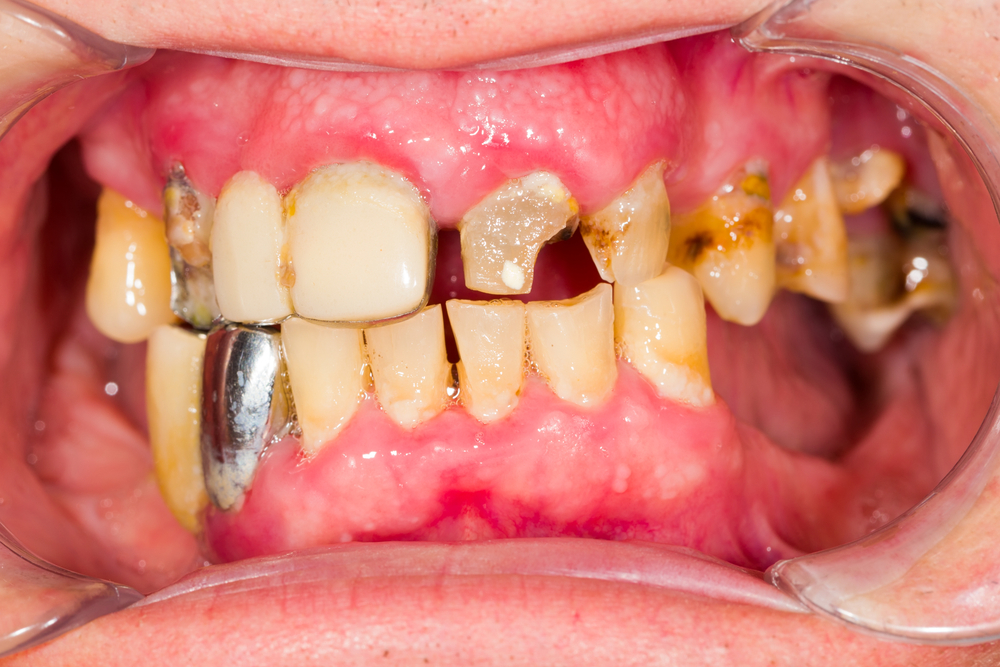
Bad Teeth and The Way Forward
Sometimes good teeth turn into bad teeth. It’s usually a frustrating, uncomfortable journey with a lot of treatment and expense along the way. But we need teeth for a few obvious reasons. Besides their important functional role, they also enhance a person’s physical appearance. So, one way or another, we need to maintain or correct teeth in decline.
Keeping teeth healthy takes a dose of care and diligence. If you’re careless and don’t pay much attention, it’s like not doing maintenance on your car: Eventually it’s going to catch up with you. Next thing you know, you’re headed down a road you never meant to end up on.
Millions of people find themselves with numerous cavities or gum disease, both leading causes of tooth loss. Sometimes there’s one reason, sometimes there are many. Usually, a combination of factors play into the affliction.
Why Do Teeth Go Bad?
Most people don’t realize it, but cavities are an infection. First, young babies often end up with a mix of bacteria from their mothers that reside on their teeth. Like all living organisms, these bacteria need energy to live. Since they love sugar and other carbohydrates, they’re happy when you drink a soda or chew dried fruit.
These oral bacteria create energy from sugars and produce acid as a waste product. You can imagine what happens when acid gets dumped on your teeth. Holes start to form in the weakened surface, and a cavity develops. Soon, you have bacteria invading the inside of the tooth and headed to the nerve. Next, an abscess develops and the tooth needs to be removed if too much damage has occurred.
A similar process occurs in gum disease. Gum-loving bacteria produce toxins that cause inflammation and bone destruction. Teeth go bad because they’ve lost their supporting bone around the base of them.
Bad Teeth Signs and Symptoms
If you experience symptoms of tooth decay, you need to visit your dentist as soon as possible. Waiting works well if you’re looking for a bus, but it’s not a great idea when you have mouth pain. The earlier that cavities are identified, the easier their treatment. If you experience the following symptoms, you should make firm plans to visit a dentist:
- Tooth pain including sensitivity, throbbing, or soreness
- Any kind of pit, hole, or sharp edge on a tooth
- Pus or drainage around a tooth
How Do You Handle Bad Teeth?
There isn’t a “one size fits all” solution for teeth that go into decline. In many cases, repairs can be made to the existing teeth. Or gum disease can be controlled with therapy and new homecare habits. When teeth cross the proverbial line, they may need to be removed. In this scenario, dentures become one possible solution to the missing teeth issue. However, dentures have a few drawbacks to consider:
- Dentures are by nature removable appliances, and they may move in the mouth and cause sore spots on the gums.
- Dentures do not provide the same eating experience that natural teeth do. Hence, there is a chance that they may lead to poor eating habits, weight loss, and nutritional deficiencies.
- Sometimes, dentures are not fitted properly and have a poor bite. This may also lead to changes in jaw joint thus creating jaw, neck pain, and headache.
Fortunately, dental implants offer up a wide array of options if bad teeth end up needing removal. These strong, titanium cylinders sit in the jawbone and mimic the root of a tooth. This powerful support system can be used to hold a denture firmly in place. On the other hand, they can replace a single tooth or several missing teeth.
Cost may be a consideration when it comes to dental implants. However, this depends on the number of dental implants being placed and other associated procedures which can be discussed with the dental office or the dentist.
We Can Help
Many people wonder how they can find the best dental info and best dentists articles online. The reason many people are looking for local dental information online is fairly simple. For one, they want to know what is going on in their mouth. For instance, if your dentist tells you that you need a root canal on your back molar and need to see an endodontist, you want to know more. You may be curious to find out what is a root canal and who are local endodontists? What does an endodontist do?
At Dental Chat, we help cut through the confusion and provide accurate, valuable blogs on every topic. Here is a local dentist link to Endodontics Dental Chat about Local Endodontists. The best part is that we network with local dental blogs and local dentist bloggers who share their local dentist articles with us. We are looking to list the best local dental offices and best dentists for patients that need to have a root canal or another dental service. We are always looking to expand and grow and offer the Best Local Dental
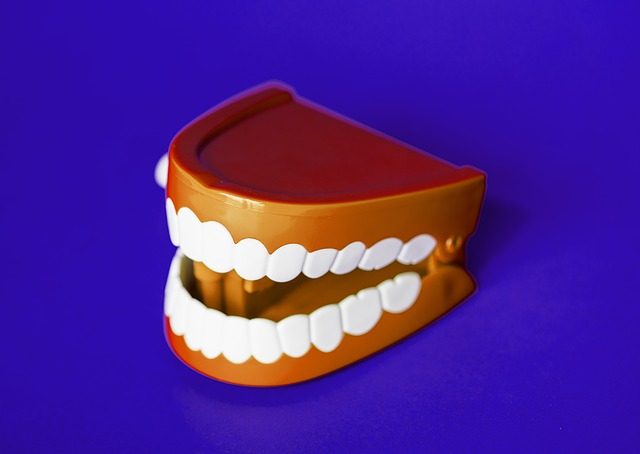
Online dentist communication with patients
New technology is making dentistry and health care more exciting & providing more tools to connect. In the last twenty years, technology has rapidly progressed. This technology is changing health care.
There are many people who have a dental question who do not want to go to the dental office. We are live dentist chatting online with people. Patients can local dentist chat with dentists – using modern technology.
Telemedicine industry is rapidly expanding and innovating. People are using various telemedicine sites – to communicate with doctors.
Excellent time for people to share their dental story — Share your dental story online with us. Here is the link to share your dental story on Dentalchat.
https://awsapi.dentalchat.com/my-story/
Local live dental chat and Best dental marketing online with us at DentalChat. We are communicating with people that have dental questions. Best teledentistry communication and local teledentist chat online with us. Great time to dental market with us.
We are at DentalChat.com looking to bring exciting new dental technology to improve dental care & increase people’s dental knowledge.
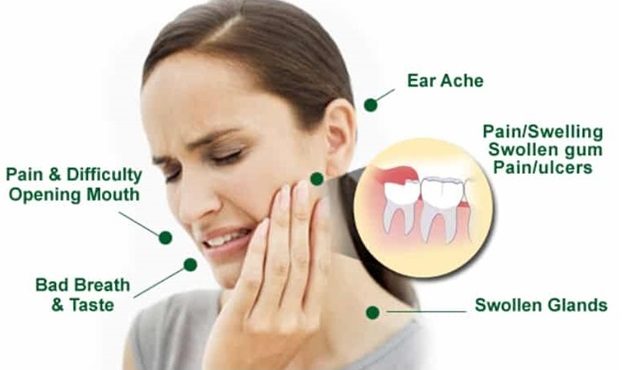
Do Wisdom Teeth Need To Be Removed? Here’s A Look
Growth brings along a lot of questions, including “Do wisdom teeth need to be removed?” The answer isn’t always as straightforward as it seems.
A normal adult mouth has 32 teeth, which (except for wisdom teeth) have erupted into place by about age 13. The human teeth function to mechanically break down items of food by cutting and crushing them in preparation for swallowing and digesting. Humans have four types of teeth: Incisors, canines, premolars, and molars. The incisors cut the food, the canines tear the food, and the molars and premolars crush the food.
The roots of teeth are embedded in the maxilla (upper jaw) or the mandible (lower jaw) and are covered by gums. Teeth are made of multiple tissues of varying density and hardness the third and final set of molars that most people get in their late teens or early twenties are called wisdom teeth.
Are They Worth Having?
These teeth can be a valuable asset to the mouth if they’re healthy and properly aligned. But more often, they are misaligned and require removal. There are certain myths related to wisdom teeth in Asia that is a person’s intelligence is completed once a person’s wisdom teeth are present. However, science has never proven such myths! A person whose wisdom tooth is coming to surface may not have any symptoms. On the other hand, they may have severe pain and difficulty eating and talking.
When wisdom teeth are misaligned, they may be positioned at various angles in the jaw. Poor alignment of wisdom teeth can crowd or damage adjacent teeth, the jawbone, or nerves. Wisdom teeth can also be impacted if they are enclosed within the soft tissue and/or the jawbone or only partially break through or erupt through the gum. Partial eruption of the wisdom teeth allows an opening for bacteria to enter around the tooth and cause an infection, which results in pain, swelling, jaw stiffness, or difficult breathing.
Do Wisdom Teeth Need To Be Removed? Maybe Not?
Dental experts don’t always agree that wisdom teeth need to be removed. Some suggest they should be left unless they’re causing problems and pain. However, others suggest taking them out because they only present risks, not benefits. The decision should come from you and your dentist collaborative discussion. If they’re causing significant pain or damage to neighboring teeth, they need to go.
There are still many unanswered questions about wisdom teeth. This is one of the reasons why even the experts don’t always agree what to do about them. Some dentists recommend removing wisdom teeth no matter what, even if they aren’t causing any problems. This perspective is based on the fact that wisdom teeth will usually end up causing problems in the long run.
Another argument is that we simply no longer need wisdom teeth to function. Wisdom teeth often do not come in or they only partially break through the gum. Up to 80% of young people in Europe have at least one wisdom tooth that hasn’t broken through. This is more common in the lower jaw than it is in the upper jaw. The reason is usually that there isn’t enough room in the jaw.
Time Brings Changes
Evolution has made adjustments to our jawbone size throughout human history. The jaws of modern human beings are smaller when compared to their ancestors. This presents a range of problems when wisdom teeth try to erupt into place. They often become blocked by other teeth and grow inside the jaw.
If the wisdom tooth erupts partially, it tends to create hard to reach area where bacteria can accumulate resulting in severe infections of the surrounding tissues and gums.
When wisdom teeth remain fully impacted under the gum line, they may form cyst or tumor that can damage the jawbone and teeth if left unaddressed. Hence most people undergo wisdom teeth removal to prevent themselves from the potential problems which may arise.
- Local Emergency Dental Chat Online:
Great time to network and market online with us. Local Emergency Dental Chat Online and Search for Local Dentists online with us @ DentalChat.com. We welcome guest dental bloggers on DentalChat.
- Find a Dentist – Connect with Local Dentists in your area:
Are you looking to Find a Dentist in your area? At DentalChat, we can help with that! DentalChat.com connects you in real-time with dentists in your area.

What Causes Yellow Teeth? Brighten Your Smile
Our teeth are a major indicator of our oral hygiene, and they can boost or deflate the self-esteem of even the most confident people. That’s why it’s imperative that we take care of our teeth and make sure they’re cleaned daily. Even with regular homecare, some people see their teeth discolor. That frustration inevitably begs the question, “What causes yellow teeth?”
That question is one of the most common inquiries we get from people who want to know just why their teeth are turning yellow, and how they can get whiter teeth and keep them that way. That question makes it pertinent to know the causes of yellow teeth and how to prevent or whiten discolored teeth.
How Did They Get This Way?
There are many reasons why teeth become yellow or stained. These reasons range from poor oral hygiene to genetics. Some of the reasons for yellow teeth include:
- Poor Oral Hygiene
Failing to brush at least once a day can cause yellow teeth as well as other dental complications. In addition, eating sugary food or foods with high acidity can cause plaque buildup and excessive damage to the enamel of the teeth. When this happens, food pigments can easily be absorbed into the dentin, the layer next to the enamel. These stains further weaken the enamel and cause visible yellow and brownish yellow stains on the teeth.
- Foods and Drinks
One factor responsible for what causes yellow teeth is the type of food or drinks you consume daily. For instance, A person who consumes a lot of tea and coffee without taking some time to brush daily will end up with stained teeth. Red wine, white wine, dark sodas, and energy drinks with synthetic flavors can also cause yellow teeth.
Certain types of food like curry spices, berries, tomatoes, tobacco leaves, vinegar, and others have been known to contain pigments that are capable of leaving a stain on the teeth.
- Smoking
Smoking doesn’t just cause damage to the lungs: It also causes yellow teeth. The nicotine contained in cigarettes generally leaves brownish stains on the teeth surface.
- Aging
It is normal for the teeth to start turning yellow as we age. This is because the enamel, the outer surface of the teeth, wears out gradually as it’s exposed to different acids in the food and drinks consumed. As the enamel gradually erodes, the layer beneath, dentin, begins to show. The dentin isn’t white like enamel, so it causes teeth to appear discolored.
- Genetics
Tooth coloration is partially influenced by genetics. Some people have naturally colored teeth as a result of the inherent traits of the genetics in their families. Apart from white, there are generally four other shades of color that appear naturally in teeth. These include reddish yellow, reddish brown, gray, and reddish gray. These colors also vary in depth across the light spectrum ranging from light to dark.
- Excess Fluoride
Excess fluoride is bad for the teeth. Fluoride is great for teeth, but when fluoride intake becomes excessive, it can lead to Fluorosis: Yellow and brownish yellow spots appearing on the teeth. Fluoride is present in toothpaste, fluoridated water, and some other prescription drugs. It’s important to consult a dentist to ensure that your fluoride intake is not excessive.
Other causes of yellow teeth include accidents, physical trauma, and antibiotics like Tetracycline. If taken during pregnancy or before the age of eight, this antibiotic can cause permanently stained teeth.
How To Prevent Yellow Teeth
In some cases, yellow discoloration can be prevented or reversed using simple and natural ingredients found at home, some of which include:
- Baking Soda and Hydrogen Peroxide
These two ingredients, when mixed to form a paste, can help reduce the yellow coloration of teeth. A 2012 study found these two ingredients and toothpaste containing them helpful in improving teeth whiteness. A DIY paste can easily be made at home by mixing two tablespoons of hydrogen peroxide with one tablespoon of baking soda. Any toothpaste that contains baking soda and hydrogen peroxide can also do the job.
- Apple Cider Vinegar
Apple cider vinegar, when used in small proportions, can help get stains off the teeth and improve teeth whiteness. But if it’s used too frequently, it can erode the enamel and damage the teeth surface. Therefore, it’s not meant for everyday use. Use sparingly, cautiously, and in small quantities.
- Vitamin C
The result of a 2007 study showed that periodontitis, caused by a buildup of bacteria on the teeth and in the gums, is worse in people with vitamin C deficiency. Periodontitis, or gum disease, is a contributing factor to discoloration of teeth as gums recede and expose the darker roots of the teeth. Vitamin C is just one small influencer of this inflammatory condition that afflicts 30% of the population. But it emphasizes that good nutrition contributes to all parts of general health, including oral wellness.
Apart from these remedies that can be used as preventive measures, other dental remedies abound which help to improve or restore teeth whiteness. Some of them include:
- Good Oral Hygiene
Almost everyone knows good homecare habits help to keep our teeth and mouth healthy and fresh. It’s good practice to brush at least twice daily. Brushing for two or three minutes each time and brushing every tooth gently and in circular motions helps remove plaque and food. Flossing the teeth also helps to keep the mouth clean and free of food remnants that are stuck in the teeth and gum. In addition, teeth whitening toothpaste is also becoming more popular with people that need to know what causes yellow teeth. They won’t remove embedded stain, but they can help prevent more of it.
- Regular Dental Exam and Dental Prophy
To properly restore the natural color of your teeth, it’s important to consult a dentist. To top it off, a dental exam helps you discover the state of your oral health. One thing you can do is to see a dentist or dental hygienist regularly, at least every six months or twice a year. If your teeth are found unhealthy, a DENTAL PROPHY may be necessary. A Dental Prophy is a cleaning procedure that is done to remove large amounts of plaque buildup on the teeth and gums. And it helps to control periodontitis and gingivitis and prevent what causes yellow teeth. Furthermore, it’s often covered extremely well by dental insurance.
Just Do It!
In summary, many people what to know “What causes yellow teeth?” There are many factors, some of which can be prevented with good oral hygiene natural home remedies. Yellow teeth can also be treated professionally by dentists and then maintained with a host of recommended dental solutions. So, don’t forget to visit your dentist regularly and keep your oral health at the top of its game!
At DentalChat, we’ve got you covered. Connect online with a dentist in your area right now, in real-time!
Want to Learn More? Cosmetic Dentistry Blog: Here’s an interesting article on DentalChat about cosmetic dentistry and cosmetic dental procedures –
https://dentalchat.com/cosmetic-dentistry-procedures-and-cosmetic-dentist-chat
At DentalChat, we network with leading dental bloggers and professionals in the dental industry who may want to contribute daily blogs or articles to share with us. Online Dental Questions Blog, Local Dentist Chat Online and Ask Dentist a Dental Question with us. We innovate dentistry with real-time, online interaction between dental practices and patients. Dentalchat was founded by a dentist and includes dental professionals on our management team.
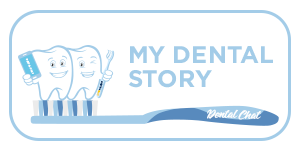
Bad Teeth Blog, Dentures or Implants
Unfortunately, there are millions of people that have teeth with large amount of caries. Many times they have not had professional dental care / have not gone to a dentist for many, many years. Sometimes, they only go for emergency dental care. We are Dentist Chatting about Bad Teeth in this Dental Blog.
Many times, these patients end up with some form of a denture – whether it is a partial denture or full mouth set of dentures. Some of these people, do want to get something better than just dentures.
Problems with Dentures –
Why do people want to get something better than just dentures – well dentures can be ill fitting and can be hard to chew with. Dentures are by nature, removable appliances – that can move in the mouth when chewing. Hence, these people with dentures can possibly be having sore spots in the mouth, etc.
Dentures Blog – Dentures and Dental Implants Information online –
Dentures over time can become loose because of jaw bone recession. One option now available, is getting dentures with dental implants. With this option, patients can have better-looking teeth and also have better retention inside the mouth. That is, the denture is attached to dental implants – hence, less movement inside the mouth and better chewing.
One thing to keep in mind – is the cost involved with getting dental implants and dentures. The cost can be much higher, depending on the number of dental implants being placed and the other gum procedures that may be involved. Can discuss with your dentist / dental office various dental treatment options. We have other Dentist Blogs to check out on DentalChat.com. Here is a Dentist Blog about Best Dental Implants
https://dentalchat.com/best-dental-implant-information-best-dental-implants-info-online
Bad Teeth Blog, Dental Implants Discussion & Denture Blogging with us at DentalChat. We are networking with dental bloggers @ Dental Chat.
In summary – we did a Dentist Blog about dentures. There are more options than ever for people with bad teeth (people with many caries). Each of these options has various price points and differing dental treatment plans.
